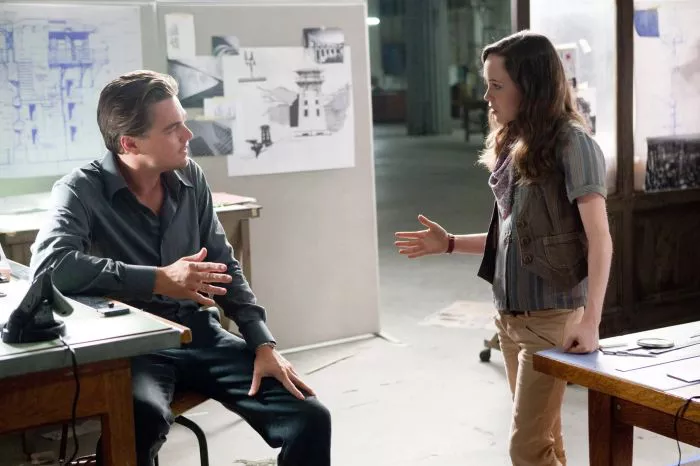Christopher Nolan’s “Inception” (2010) is a cinematic masterpiece that delves deep into existential themes, blurring the boundaries between dreams and reality, life and death. Through its intricate narrative and thought-provoking symbolism, the film challenges viewers to contemplate profound questions about the nature of existence and the complexities of human consciousness. In this exploration, we dissect the themes of life, death, dreams, and reality as depicted in “Inception.”
Dreams as Alternate Realities
“At the heart of the experience, we wanted to make a movie about dreams that actually worked like a dream,” Christopher Nolan once explained. Indeed, dreams in “Inception” serve as alternate realities where the subconscious mind constructs intricate worlds governed by imagination and memory. The film explores the notion that dreams can be as tangible and vivid as waking life, blurring the distinction between reality and illusion.
Through visually stunning dreamscapes, such as the labyrinthine city of Cobb’s subconscious or the serene landscapes of Saito’s dreams, “Inception” challenges traditional perceptions of reality, inviting viewers to question what is real and what is imagined.
The Line Between Life and Death
“Inception” also explores the liminal space between life and death, with death serving as a recurring motif throughout the narrative. The film opens with Cobb washed ashore on a beach—a symbolic depiction of being stranded between life and death, haunted by memories of his deceased wife, Mal.
The concept of limbo—a deep subconscious state resembling purgatory—further blurs the boundaries between life and death in “Inception.” Characters navigate through layers of dreams that resemble different stages of existence, challenging conventional notions of mortality and afterlife.
Cobb’s Psychological Journey
Central to the exploration of life and death in “Inception” is Cobb’s psychological journey, shaped by guilt, grief, and longing. Cobb’s unresolved feelings towards his deceased wife, Mal, manifest as projections within his dreams, haunting him with visions of their shared past.
Cobb’s emotional turmoil reflects a broader existential crisis, as he grapples with the consequences of manipulating dreams and altering perceptions of reality. His quest for redemption and reconciliation drives the narrative forward, ultimately culminating in a poignant resolution that blurs the line between dreams and waking life.
Dreams as Metaphor for Reality
“Inception” uses dreams as a metaphor for the subjective nature of reality and the ways in which perceptions shape our understanding of the world. The film suggests that our experiences—whether in dreams or waking life—are constructed from subjective interpretations and subconscious desires.
The character of Cobb, an expert in manipulating dreams, serves as a metaphorical architect of reality, challenging the boundaries of what is possible within the mind. Through Cobb’s interactions with other characters and the dream environments he creates, “Inception” explores the malleability of perception and the power of subconscious thought.
Totems and Reality Checks
The use of totems—personalized objects that characters use to distinguish dreams from reality—serves as a symbolic representation of grounding oneself in objective truth. Each character’s totem functions as a reality check, providing a tactile connection to the real world amidst the surreal landscapes of dreams.
The significance of totems underscores the film’s exploration of uncertainty and doubt, as characters grapple with existential questions about the authenticity of their experiences. The presence of totems emphasizes the importance of maintaining a sense of reality amid the fluidity of dreams.
Conclusion: Interconnected Realities
“Inception” ultimately suggests that life, death, dreams, and reality are interconnected facets of human existence, shaped by subjective perceptions and emotional experiences. The film challenges viewers to question their understanding of reality and invites introspection into the depths of consciousness.
Through its evocative storytelling and innovative visuals, “Inception” invites audiences on a profound journey of self-discovery and philosophical inquiry. The exploration of life, death, dreams, and reality in the film resonates with timeless existential themes, reminding us of the complexities of human consciousness and the transformative power of imagination. “Inception” stands as a testament to the boundless possibilities of cinematic storytelling and the enduring allure of exploring the mysteries of existence.
Related Topics:
The Top 1 Korean movie – You May Consent To
Top 10 Thriller Movies – Brief Introductions

